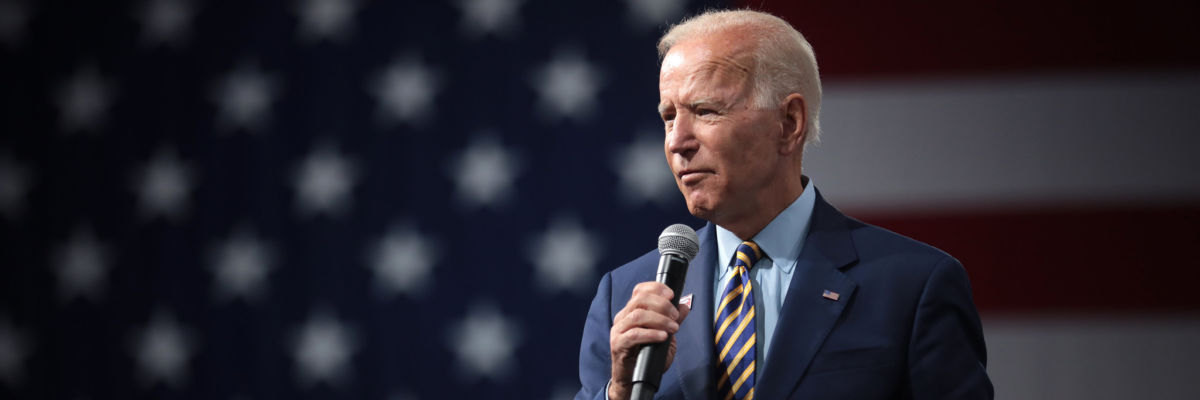
It is a sad testament to our age that the fate of children’s body parts is so much in the news lately.
Abp. Joseph F. Naumann said recently: “The bodies of children killed by abortion deserve the same respect as that of any other person. Our government has no right to treat innocent abortion victims as a commodity that can be scavenged for body parts to be used in research.”
President Biden’s press spokeswoman responded to the archbishop’s remarks: “We believe that it’s important to invest in science and look for opportunities to cure diseases and I think that’s what this is hopeful to do.”
What should American Catholics do with these words from their Catholic president?
Jesus teaches: “I am the vine, you are the branches. He who abides in me, and I in him, he it is that bears much fruit, for apart from me you can do nothing” (John 15:5). The Church’s moral theology is the systematic application of the words of Jesus to the changing circumstances of our lives, ensuring our union with him.
Among the tools of traditional moral theology are the so-called determinants of a moral act: object, circumstances, and intention. The object—or nature—of a deed is either intrinsically good or evil. St. Paul does not allow for exceptions to unrepented violations of moral absolutes: “neither the immoral, nor idolaters, nor adulterers, nor homosexuals, nor thieves, nor the greedy, nor drunkards, nor revilers, nor robbers will inherit the kingdom of God” (1 Cor. 6:9-10).
An evil intention may sinfully distort and undermine the morality of a good act. Religious piety and almsgiving are holy and good, but Jesus warns of the motive of hypocrisy: “Beware of practicing your piety before men in order to be seen by them; for then you will have no reward from your Father who is in heaven” (Matt. 6:1). On the other hand, good intentions (however noble) and circumstances (however dire and urgent) will never change an intrinsically evil act into a good action. The ends do not justify the means.
But are there limits to the strict application of this useful tool of moral analysis? Consider the story of Frankenstein’s monster. Dr. Frankenstein obtains a corpse. With the skills of a neurosurgeon, he replaces the brain with Abby Normal’s brain, attaches the body to electrodes, and hopes an electrical storm invigorates the project. Lightning strikes. It’s alive!
Did Dr. Frankenstein commit any sin? If what President Biden said through his spokeswoman said is true, then perhaps not, and we all owe Dr. Frankenstein an apology. By modern standards of medical research and even the application of the tools of traditional Catholic moral theology, Dr. Frankenstein may not have crossed the lines of immorality. Putting aside grave-robbing as an unfortunate moral misdemeanor in the narrative, rescuing a corpse from the grave, transplanting a brain into its skull, and shocking it to life may have solid pro-life characteristics. There doesn’t seem to be any violation of the object-circumstances-intention framework. Admittedly, the ensuing rampage didn’t turn out as Dr. Frankenstein foresaw. But can we blame him for trying?
Compare Dr. Frankenstein’s moral methods to many of the practices in modern medicine. With the advocacy of our politicians, doctors kill unborn babies—or, sometimes, they keep them alive. Researchers harvest fresh body parts for the manufacture of vaccines and other products. Medical professionals inject the vaccines into our bodies and promise to protect us from disease.
These body-snatching methods of modern medicine are intrinsically evil. They exceed even the horror of Dr. Frankenstein’s experiments, yet public authorities seem anxious to facilitate the research at warp speed.
Beyond intentions, circumstances, and intrinsic evil, there is another moral factor that Biden and Dr. Frankenstein—and many Catholics—overlook. Call it “the cringe test of decency.”
Dr. Frankenstein pushed—and modern medical researchers have pushed—the limits of traditional moral principles to new frontiers. Apart from evaluating his experiment with the tools of moral theology, his methods violate common sense and fail the cringe test. Doctor Frankenstein’s experiment with a corpse and a brain on the shelf is . . . well, creepy. The cringe factor goes beyond crisp doctrinal ethical analyses and enters into the realms of emotion, intuition, and beauty. Creepy is like pornography. We know it (or should know it, with common sense) when we see it.
There is a hint of the cringe factor in Paul’s letters. His initial reaction to certain sins is disgust. “But fornication, and all uncleanness, or covetousness, let it not so much as be named among you” (Eph. 5:3). A conscience that recognizes God’s dominion has an immediate revulsion to any surrender to the ancient serpentine temptation, “Ye shall be as gods” (Gen. 3:5). Brain transplants, aborting babies and harvesting their body parts—and many other sins against nature—are cringe-worthy, even before moralists consider the object, circumstances, and intention of the acts.
Our salvation depends upon our union with Jesus, upon sanctifying grace. “If a man does not abide in me, he is cast forth as a branch and withers; and the branches are gathered, thrown into the fire and burned.” (John 15:6) The orthodox application of moral principles—evaluations considering object, circumstances, and intention, as well as the Frankenstein cringe factor—with God’s grace, and according to our wits, guides us on our pilgrim way.
“This is especially a time for us Catholics,” Abp. Cordileone of San Francisco wrote this weekend, “whose faith calls us to advocate for the universal good of a consistent ethic of life, in every stage and in every condition, to call our country back to respect for human life.” News reports indicate that the bishops of the USCCB will consider the status of pro-abortion Catholic politicians during their June meeting. As much as we’ve grown accustomed to reckoning with the fallout of Dr. Frankenstein’s culture-of-death work more or less alone, perhaps we’ll be pleasantly surprised this time.
Note from the Editor: Archbishop Salvatore Cordileone of San Francisco joined Catholic Answers Live last night to discuss his pastoral letter, released last Saturday, and take questions from listeners about pro-abortion Catholic politicians who present themselves for Holy Communion. You can listen to our interview with Abp. Cordileone here.
Image: Gage Skidmore via Flickr, CC BY-SA 2.0 (cropped).



